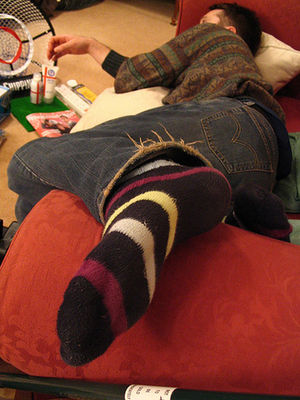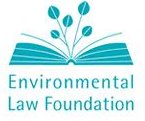What Is Pro Bono And Why Should I Do It
From Learnmore
What is pro bono?
At City Law School we try to help students to engage in voluntary work that will enable them to use some of their legal skills for the benefit of the wider community. This involves both existing projects and help for students develop their own new volunteering projects that involve the use of legal skills. This is known as PRO BONO work. Students work with outside organisations to help provide legal services, research or training. This could be through charities, schools or law centres. It may range from working in a law clinic to do doing legal research or presenting on a legal topic to schoolchildren. Pro bono work should not be confused with work experience in a law firm, although there may be cases where the two overlap.
Pro bono thus includes a broad range of volunteering with a legal angle. This is different to the general volunteering in the community that is open to all City University students (including non-lawyers) and that does not involve legal skills. There are many more opportunities to do this organised by the University Centre for Careers and Skills Development. This might involve going to read with children in local schools or working in a local hospital.
Why should I bother doing it?
The most important reason to do pro bono work is to provide benefit to the community that might otherwise not be available. You have legal and other skills that are in short supply and are in great need. The cost of skilled legal services is very high and beyond the reach of many. The system of public-funding is incomplete. Legal charities are also always looking for help from those with legal training.
In order to provide a good service, you must be committed to your pro bono work. This means that you should only get involved if you have that commitment. Whilst pro bono is commonly undertaken to improve a student’s profile in the job market, this should not obscure your primary duty.
Good quality pro bono work will certainly help you develop as a lawyer and a person. It may provide you with invaluable experience of real face-to-face client contact, interviewing, research and drafting skills. It may expose you to new perspectives on social and other cultural problems remote from your experience. This will help you in your career and in life generally.
Pro bono experience which is relevant to your desired career may help you realise your goals. Thus students wishing to work in, for example, criminal law may find that working with young offenders may be attractive to potential employers. More generally however, good quality pro bono work may demonstrate commitment to justice, dedication, flexibility, team-work, open-mindedness, organisation and other characteristics and values that are attractive to employers.
Pro bono or volunteering?
For students intent on pursuing a career in law, it makes sense to do pro bono work. This will best utilise their skills and develop them as lawyers. This said, there are not unlimited opportunites. It can be difficult to find suitable options that fit with studies, work and other commitments. In addition, some students do not wish to pursue a legal career. For all these reasons, it is important to look at volunteering more generally. This can have many of the same positive contributions to both the community and the student as pro bono work. There are many more general volunteering options than there are pro bono ones. It is certainly better to do volunteering rather than give up looking because no suitable pro bono option arises. You should look at the opportunities listed on the City Volunteering website, or you can discuss volunteering with Ben Butlerat the Centre for Careers & Skills Development.
What type of pro bono work?
Students should be guided by a number of factors in their choice of pro bono work. There are some activities that would be more suitable for some students than others. The factors to consider are set out below:
A note for undergraduates
There are many projects for you to get involved in and these opportunities expand as you go through your course. You might want to start with a Streetlaw presentation in your first or second year and move on to running debating workshops with DebateMate. You can do advocacy with the Free Representation Unit in your final year. Read the rest of these notes for guidance. A few projects are reserved to post-graduates or senior undergraduates (second or third year) because the providers require more experienced students.
Time
You must have enough time to give to a project and you must be reliable. If you are concerned about a clash with your studies or paid employment be careful to find a project that fits your needs.
Some projects might require you to attend one day a week at a local charity. This requires a steady commitment. Other pro bono work can be more infrequent like Free Representation Unit advocacy where you take on cases as you feel able. Still other work might involve reseach in your own time at the weekends or in the evening. This is again more flexible.
Level and fit
You should take on pro bono work that is suitable to your skills, abilities and ambitions. Students who are less experienced might wish to start with more administrative tasks such as helping a lawyer at a law clinic. Those that wish to develop advocacy might begin with presentations in schools through a Streetlaw project (see below). Students aiming at doing advocacy in practice can then move on to providing free advocacy. Other students may wish to do research-based work that develops their writing and case-research skills.
Interests and experience
It is always good to build upon experience and interests that you already have. Thus you may be interested in, for example, environmental issues, human rights, childrens’ rights, refugees or criminal justice.The most important thing is to have a good level of commitment to the project you wish to get involved in. If you have worked with a charity in the past and would like to do so again then that is ideal. If they have a legal aspect to their work that is even better. You may be able to develop such a project yourself. Whilst, it is of course worth trying to find pro bono work that is relevant to your career plans but this is not essential.
Available opportunities for City Law School students
The difficulty many students face is how to secure opportunities to do pro bono work. Many organisations do not advertise such work. Other more well-known charities like Amnesty International have a very large demand for their internship schemes. These often require three or six month full-time commitments and are not suitable for full-time students. Often unsolicited letters sent by students will not be replied to by small organisations.
For these reasons, we have been developing some partnerships with a number of organizations to try and provide City Law School students with a more open door to do pro bono work. There are however only limited places available. More details are given below on these links.
Students should therefore look carefully at organisations in their local area and approach them in person. We can write supporting references in appropriate cases. They should also discuss initiating projects with charities that they have worked with in the past. There are many local charities that we may be able to develop new opportunities with. Dan Wilsher (Pro Bono Co-ordinator & Senior Lecturer in Law) is happy to discuss this with students who have ideas of their own.
Developing pro bono through student-led projects
We are geographically close to a great many charities and other non-governmental organizations in Islington. Most famously we have Amnesty International, Greenpeace and Friends of the Earth within a mile radius. There are however dozens of other smaller charities too. We are ideally positioned for pro bono options. We would like to see more and more partnerships with local NGOs which develop into genuine on-going relationships that foster the place of City Law School in the wider society and local community. Students will be the key to building such links and we are very keen to help you establish pro bono projects that you can take forward.
Projects that have links with City Law School department of law
The following are some organisations that we have had connections with in recent years. They are groups that have worked well with our student volunteers in the past. They do not all take volunteers every year. Some of them have also got more formal links with the City Law School through Dan Wilsher and other staff who have contacts in the organisations concerned. We have not developed all the potential projects with these groups that could be rolled out. There is therefore potential for students to take some of these forward on their own intitative in partnership with the organisations and the City Law School. Given the right organisation and your enthusiasm and determination, new pro bono projects will be possible. Before approaching an organisation listed below, you might find it helpful to come and see Dan Wilsher to discuss your ideas about how you can help.
Community Work
DebateMate
This is a leading charity that works with secondary schools to provide debating clubs after school hours. The aim is to boost the self-confidence and public speaking skills of teenagers. The organisation works with a number of leading law firms to provide these sessions. Student volunteers from City Law School have begun to work within these clubs and in the process will help both the schools and themselves. The obligation is to organise and attend a debating club once a week during term time. You can choose a school which is convenient for you. This will help them with their legal skills and in making contacts within the profession.
Streetlaw- the Law Student in the Community
Streetlaw projects are a type of pro bono work rather than an organisation as such. Students work up a topic into a presentation that they can give in schools, colleges or local community centres. The theme could be rights of children, criminal defence rights, housing or even business law like tax or VAT. You work with a qualified lawyer to check the law and then go and take the presentation out to the community. It will develop your legal and presentational skills. undergraduates to present on legal topics in schools, community groups and colleges. These can be self-starting with some staff oversight on legal accuracy. Ben Butler is able to help you to get involved and has links to local schools and other groups.
Just for Kids
This is a charity linked to a firm of criminal defence lawyers. They offer training in youth justice issues. They hope that following the training sessions students may get involved in working with young people who are within the criminal justice system. We have had students who act as liason points there. You may be able to help them organise a training session and you may be able to find mentoring and assistance type roles at a latter stage depending on your level of commitment.
The Howard League for Penal Reform
This is the leading prison reform charity that aims to campaign to improve the prison system to make it more just and humane. We have had students go into schools with them in order to deliver sessions on citizenship and individual rights. We have been in contact with them and they have hopes to begin new projects for students to volunteer in the community like the citizenship programme they had previously.
Clinics and Case-Work
Golden Lane Legal Advice Clinic
This clinic was set up as a partnership between the City Law School and Islington Peoples Rights (IPR) in 2008. Our aim is to give local residents advice on debt, housing, employment and benefits. We provide student volunteers who have been trained to give advice. IPR provides a qualified lawyer to supervise the students. The clients are then seen on a Tuesday night at a local health and community centre. There are limited places available for post-graduate students only to train for this in October each year.
Childrens Rights Alliance for England (CRAE)
This is an umbrella organisation that was set up by a partnership of charities engaged in childrens’ issues. The main work involves monitoring of UK compliance with the UN Convention on the Rights of the Child. They are also beginning to develop an individual case service and the instigation of test cases on childrens’ rights. To this end they have started an advice line for children. They may have a need for student volunteers to be trained to staff the advice line and we may be able to partner with them to staff this in the future. The commitment may be one afternoon per week engaged in staffing phones and drafting emails in response to queries on child law.
Royal Courts of Justice Citizens Advice Bureau
This Citizens Advice Bureau provides a number of services. They are based next to the Family Division of the High Court in Chancery Lane. They advise litigants in person at the Royal Courts of Justice but also provide legal advice to local residents. They need students to volunteer as reception and legal support staff at the RCJ clinic. We have had groups of students to do this over the summer and then on a rota basis during the term time. They also need help with their social policy research and support for the Deputy Director. This could be particularly suitable for undergraduates.
The Innocence Project
This is a charity based in Pump Court Chambers under barrister Mark MacDonald that takes up the cases of possibly wrongfully convicted serving prisoners. Working in teams under the supervision of a member of the law school staff, students gather evidence and review papers with a view to getting cases reconsidered. This involves referring cases to the Criminal Cases Review Board and then on to the Court of Appeal. The project has produced a number of successful appeals. This is ongoing from previous years and depends upon good team-work, the availability of cases and staff supervision. A number of staff have ongoing involvement in supervising students in this project. It is aimed principally at more experienced students doing their professional training but there is some scope for academic stage students to get involved.
Research and Policy
Centre for Corporate Accountability
This small charity campaigns against deaths in the workplace and seeks to change the law to protect workers through such issues as corportate manslaughter legislation and inquest reform. In 2008, five students formed a group to research 40 deaths of migrant workers and their subsequent inquests. This research was used in a published report that aimed to highlight the particular problems facing migrants. We have also been asked to do further research with this group. The projects generally involve research on issues of law and procedure.
Stonewall
The leading gay, lesbian, bisexual and transsexual charity campaigns on legal rights and legislative reform. They have however begun an advice and support service for members of the public. We have been working with them to produce a series of legal information guides for users of Stonewall’s advice line. Past City students Ben Stimmler and Charlotte Threipland (with the help of Dr Dan Wilsher, Senior Lecturer in Law), produced a guide giving information on the rights of gay asylum seekers and immigrants in relation to refugee status.. Check it out here.
Environmental Law Foundation
This is the leading UK legal environmental action group. They help local groups and individuals seeking to challenge environmentally damaging behaviour and projects. We have a close relationship with them and have had student volunteers already help with their work. They need students to audit their case-files to establish outcomes and produce data. We now have a student group updating a report on environmental justice. There are a number of EU-level complaints they would like help with on legal research.
Bail for Immigration Detainees
This charity represents immigration detainees and also campaigns around detention issues. They need research into a number of issues arising from the case-work on detention. They would like to use students to compile data and research on the length and reasons for detention.
In 2007-8 a group of City Law School students conducted research into the fairness of expedited asylum appeals in relation to detainees held at Harmondsworth detention centre. They attended hearings and collected data on the conduct of appeals. This data went towards the preparation of test cases seeking to challenge some of the procedures adopted in such cases.
Joint Council for the Welfare of Immigrants
Dan Wilsher is on the executive committee of this leading charity and campaign group that seeks to improve the legal position of immigrants and refugees. They require help with legal research and policy work. We have had individual students provide research for them. We may be able to establish a student group that may undertake such work.
Transparency International UK
This is the UK branch of the leading international anti-bribery and corruption charity. The group attempts to change law and practice so as to combat corruption both in the Western and developing worlds. Students may be able to do research in anti-corruption law and practice if a suitable project is available.
Minority Rights Group International
An international human rights project that attempts to bring legal challenges in human rights courts such as the African Human Rights Commission. Their main focus is the rights of indigenous peoples and land rights. In 2008 four City students provided background legal research on land-rights issues in international and african law for a report. The charity will consider interships mainly for long-term projects from students who have experience of human rights work.
Liberty
The leading UK human rights campaign group. Usually they only take interns but in 2008 one City student conducted some one-off research on forced labour and Article 4 ECHR for a piece of litigation. We are working with Liberty in some of the Streetlaw projects where students devise presentations for schools on legal topics. We may be able to ask about further such opportunities if a suitable student is interested and Liberty has appropriate work.
Reprieve
This is a leading organisation campaigning and bringing legal cases against the death penalty. They have recently had a group of City students help them with research on the use of the death penalty around the world and this could be taken further by others wishing to form groups. The work would be mainly web-based research with a view to providing briefings and bulletins. It would be useful for those interested in human rights law.
Interrights
This is an international human rights charity that takes cases before international courts like the European Court of Human Rights. They work mainly with qualified lawyers. They have a particular focus upon Central Asian and Eastern Europe. They may consider volunteers who have experience in international human rights already. They will not accept volunteers without revelant experience.
Further sources
At present there is no simple way of signing up for particular pro bono projects. There are however useful sources of information on how to do pro bono work, sources of funding and how to start projects. The best place to find these links is the Lawworks website. Lawworks is the charity that seeks to support pro bono work by both lawyers and students.





